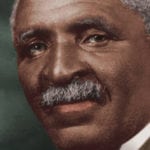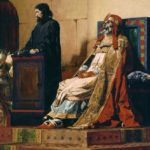 Animals
Animals  Animals
Animals  Weird Stuff
Weird Stuff 10 Weird Things People Used to Do at New Year’s
 Our World
Our World 10 Archaeological Discoveries of 2025 That Refined History
 Weird Stuff
Weird Stuff 10 Fascinating Facts You Might Not Know About Snow
 Miscellaneous
Miscellaneous Top 10 Things Crypto Was Supposed to Change & What Actually Did
 History
History 10 Huge Historical Events That Happened on Christmas Eve
 Music
Music 10 Surprising Origin Stories of Your Favorite Holiday Songs
 History
History 10 Less Than Jolly Events That Occurred on December 25
 Weird Stuff
Weird Stuff 10 Funny Ways That Researchers Overthink Christmas
 Politics
Politics 10 Political Scandals That Sent Crowds Into the Streets
 Animals
Animals 10 Species That Refused to Go Extinct
 Weird Stuff
Weird Stuff 10 Weird Things People Used to Do at New Year’s
 Our World
Our World 10 Archaeological Discoveries of 2025 That Refined History
Who's Behind Listverse?

Jamie Frater
Head Editor
Jamie founded Listverse due to an insatiable desire to share fascinating, obscure, and bizarre facts. He has been a guest speaker on numerous national radio and television stations and is a five time published author.
More About Us Weird Stuff
Weird Stuff 10 Fascinating Facts You Might Not Know About Snow
 Miscellaneous
Miscellaneous Top 10 Things Crypto Was Supposed to Change & What Actually Did
 History
History 10 Huge Historical Events That Happened on Christmas Eve
 Music
Music 10 Surprising Origin Stories of Your Favorite Holiday Songs
 History
History 10 Less Than Jolly Events That Occurred on December 25
 Weird Stuff
Weird Stuff 10 Funny Ways That Researchers Overthink Christmas
 Politics
Politics 10 Political Scandals That Sent Crowds Into the Streets
10 More Scandalous Facts About Historical Figures
History, at least what we’re taught, is often whitewashed, glossing over details people feel are unimportant—or detrimental—to the idealized version in their heads. We’ve covered ten such historical scandals in the past, but if there’s one thing we know about history, it’s that there’s no shortage of immoral conduct. Here are 10 more obscure and scandalous facts about well-known historical figures.
10 Abraham Lincoln
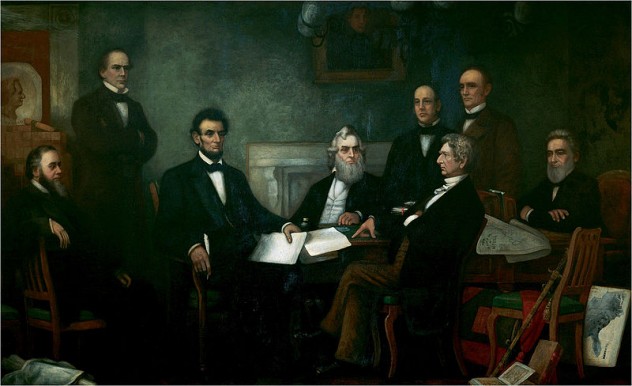
Fact: He disapproved of the First Amendment.
Granted, the phrasing of that fact is a little misleading, but Abraham Lincoln did spend an awful lot of his time during the American Civil War punishing those who held anti-Union sentiments. He had his reasons of course, declaring the preservation of the Union to be above anything else—even above the preservation of the rights of the citizens of said Union.
During the war, he was quoted as saying: “Must I shoot a simple soldier boy who deserts, while I must not touch a hair of a wily agitator who induces him to desert?” He also suspended habeas corpus, an act which was ruled unconstitutional by the Chief Justice of the Supreme Court. Despite that, Lincoln continued with his efforts for the rest of the war.
9 Isaac Newton
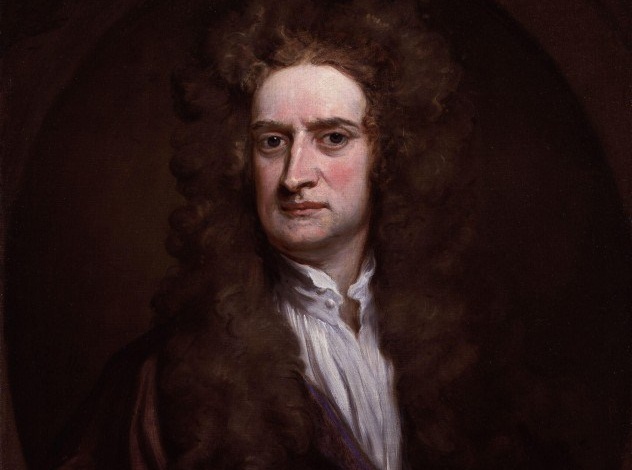
Fact: He was an alchemist.
Perhaps the greatest scientific mind in history, Newton was responsible for a number of different things, including calculus, his laws of motion, and much of the foundation of modern physics. However, there was one widely discredited field in which he believed wholeheartedly: alchemy.
Absolutely sure he could create the Philosopher’s Stone, that mythical item which was believed to be able to transmute metals into gold and grant extended life, Newton devoted much of his later life to this futile pursuit. He was also very secretive, writing all of his experiments and results in code—some which hasn’t even been translated.
8 Aristotle
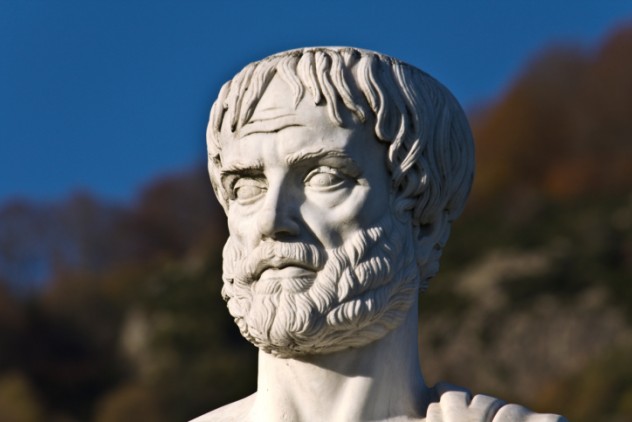
Fact: He was a misogynist.
Often considered the greatest thinker and philosopher in human history, Aristotle was responsible for the direction of Western thought for nearly 2,000 years. However, much like his contemporaries, he was also staunchly misogynistic; he even wrote that “a woman is perhaps an inferior being” and that a female was “as it were, a deformity.” A lot of the basis of his thinking was rooted in the animal kingdom and erroneous biological hypotheses that were widely believed at the time.
Aristotle did believe that women needed to be a part of society, and that their happiness was beneficial—even required—for a society to function properly, but it doesn’t make up for the sexist views he took and which helped influence Western thinking for millennia. Granted, they probably would have come up with the same ideas on their own eventually, but it didn’t help that the most influential speaker of the time was spoon-feeding it to them.
7 Franklin Delano Roosevelt
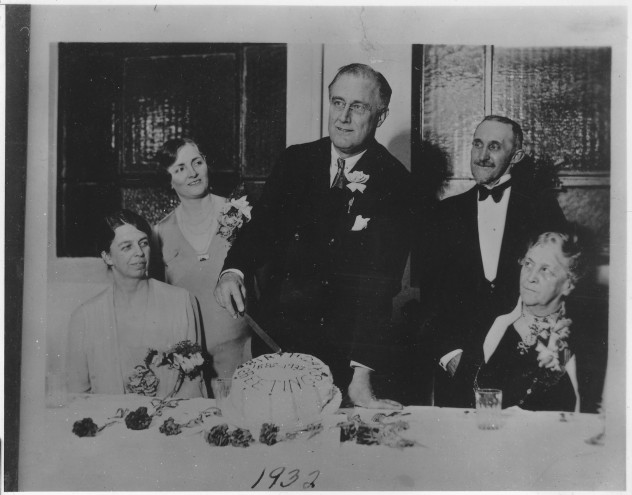
Fact: He had a longtime mistress.
The only president to serve more than two terms and an inspiration to a nation suffering through the Great Depression, FDR was undoubtedly a great man—though not without flaws. As is usually the case with men in power, he liked to touch things that didn’t belong to him—in other words, he cheated on his wife, Eleanor. In 1918, long before he became president, FDR was caught in a web of lies when Eleanor found a stash of love letters. The letters were between him and a woman named Lucy Mercer, whom FDR had hired to be his wife’s secretary in 1916.
Promising never to see her again (as well as sleep in a separate bed from then on), FDR convinced Eleanor to stay with him. However, he didn’t stay away from for Mercer for long, and continued the affair until he died in 1945; Mercer was actually at his side when he passed, a fact hidden from the public for some time. Eleanor had already discovered that the two were in cahoots again, and was decidedly not present at the time of his death.
6 Peter The Great
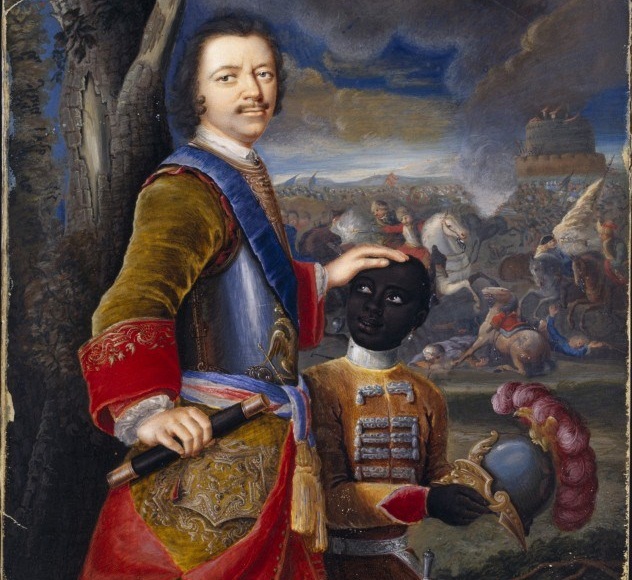
Fact: He had the head of his wife’s lover placed in a jar.
Peter the Great was the emperor of Russia for over 40 years, beginning in the late 17th century. He’s renowned for a number of things, including leading a cultural and economic revolution in Russia, which brought them more in line with the rest of Western civilization. He was also an unabashed philanderer who would squeeze the breasts of his wife’s ladies-in-waiting, even when she was in the room. However, he couldn’t stand it when she got a little bit of her own action on the side.
His wife, Catherine I, ended up starting a relationship with William Mons, her chamberlain and the brother of Peter’s first mistress. When the affair was discovered, Peter accused Mons of trumped-up bribery charges and had him executed. After the hanging, Peter had the corpse’s head removed, preserved in a jar, and placed in Catherine’s room as a morbid reminder of her infidelity.
5 Jawaharlal Nehru
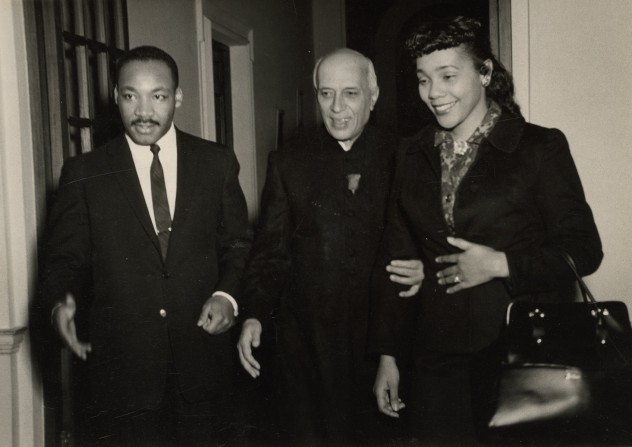
Fact: He had an affair with a British viceroy’s wife.
Jawaharlal Nehru is best known as the first Prime Minister of India. He was an extremely influential figure in Indian politics, as well as a student of Mahatma Gandhi. His wife died young, and he remained a widower for the rest of his life, but he later became intimately involved with Edwina Mountbatten, who was the wife of the British viceroy to India, Lord Louis Mountbatten. The Mountbattens’ daughter, Pamela Hicks, insists it was a platonic relationship—even though her mother had a history of extramarital affairs.
Various love letters have been found, leading us to the conclusion that there was indeed a physical aspect to their relationship. It was well known by the public that the two were in love; in fact, it was such a publicized affair that Nehru’s opposition party had the following slogan: “Break open Rama’s heart, you will find Sita [a revered figure in Hinduism] written on it; break open Nehru’s heart, you will find Lady Mountbatten written on it.”
4 William S. Burroughs

Fact: He killed his common-law wife while drunk.
One of the most innovative and culturally relevant American authors of the 20th century, William S. Burroughs was once involved in a deadly accident with his common-law wife, Joan Vollmer. The two began living together in 1944 and had a son together in 1947, and both were heavily into drugs. One night, in 1951, Burroughs and Vollmer were partying in Mexico City and decided to play a drunken game of “William Tell.” She balanced a glass on her head and Burroughs took aim with a pistol. He fired, but the shot missed the glass and tore through Vollmer’s forehead instead, killing her.
Burroughs spent 13 days in jail, until his brother bribed Mexican officials to let him out on bail. He eventually fled the country, returned to the United States, and was convicted in absentia of negligent homicide and given a suspended prison sentence (which he never served).
3 Caravaggio
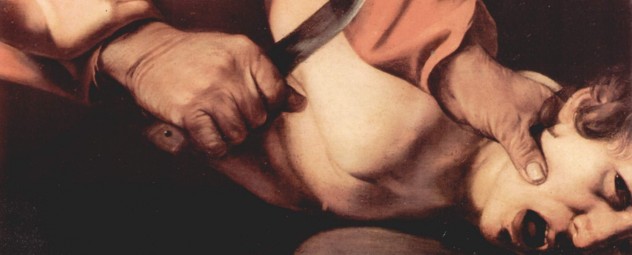
Fact: He murdered a pimp over a prostitute.
Caravaggio was an extremely popular Italian artist in the late 16th and early 17th centuries. He was very gifted with the brush but also had an anger problem, which led to his frequent brushes with the law. However, it was a pimp named Ranuccio Tomassoni who faced the brunt of his wrath when a dispute arose over Fillide Melandroni, a prostitute whom both men wished to sleep with. Originally believed to be a fight over a tennis match, new information has uncovered the truth behind the accident which led to Tomassoni’s death.
Due to the sexual nature of their conflict, Caravaggio was trying to castrate his victim, intending to leave him alive. Unfortunately, the painter didn’t really know much about anatomy and accidentally killed Tomassoni by severing his femoral artery. Even though it was a duel set up ahead of time, Caravaggio was charged with murder. He fled, first to Malta and later a small town in Italy, where he remained until his death.
2 Thomas Jefferson
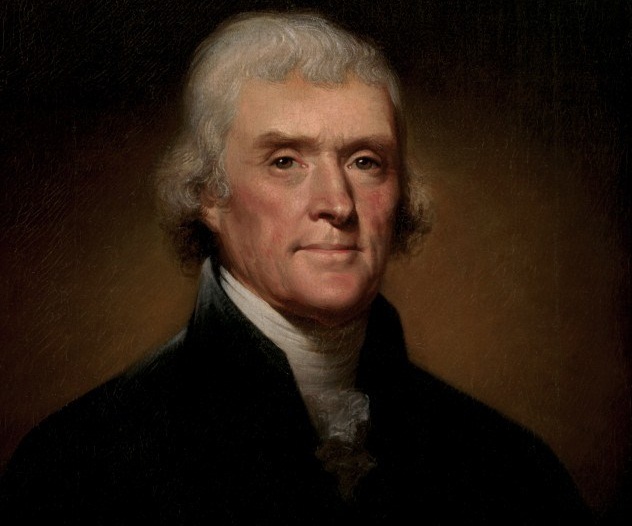
Fact: He was really bad at keeping promises.
By now, everyone is familiar with the story of Thomas Jefferson and his slave mistress, Sally Hemings. Lesser known, however, is the tale of Jefferson and Nancy Hemings, Sally’s half sister. In order to settle a debt for his sister, Anna, Jefferson sold Nancy and her children to his new brother-in-law.
When the brother-in-law turned around and tried to sell Nancy and her children separately, Nancy begged Jefferson to buy the three of them back. Jefferson promised her that he would but, when the time came, he only bought Nancy and her daughter—he refused to buy her son, intentionally separating him from his mother. Even worse, he never really intended to listen to Nancy in the first place, and almost didn’t purchase her daughter, writing: “I would not purchase the boy; as to the youngest child, if she insists on it, and my sister desires it, I would take it.”
His behavior was not rare, as it was common practice at the time for slave families to only be kept together until the kids reached 12; at that age, they were no longer considered children and were often separated from their parents. It was a tough time for slaves, and for all of Jefferson’s apparent morality, he was right in the thick of it.
1 Voltaire
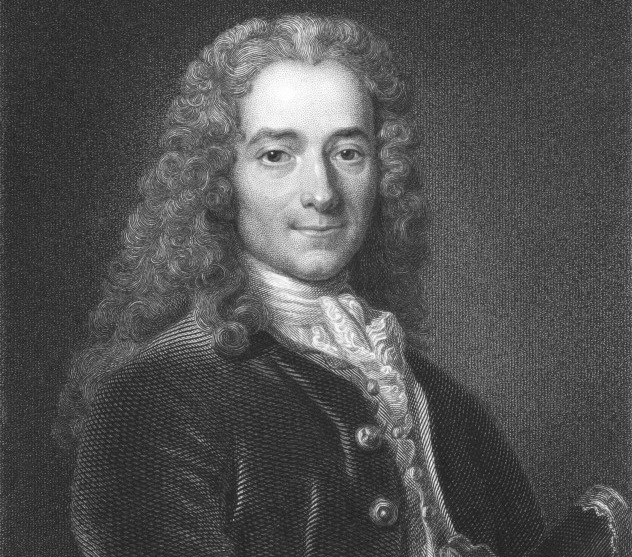
Fact: He was a staunch anti-Semite.
One of the brightest and best of the Enlightenment writers, Voltaire is best known for his satires and his biting wit. He espoused freedom of expression and religion but, unfortunately, that didn’t extend to the Jews. Perhaps due to his education as a Jesuit, Voltaire harbored a resentment of established religion—Christianity included—but hated the idea of the Old Testament, which he considered to be nothing more than a collection of myths.
When referring to the Jews, he said they “were as adept in turning fables into history as they were in turning secondhand clothes into new ones.” However, perhaps ironically, he is seen by some modern historians as a sort of unwitting hero for the Jews, a man who helped bring people out of the Christian fervor which led to much of the anti-Semitism of his day.
